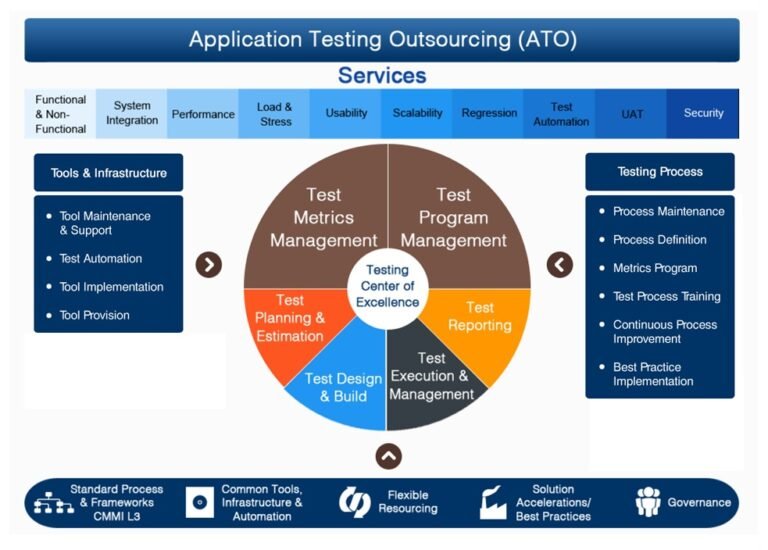Attention Investors and Fundraisers: Whether you are looking to raise capital for an innovative project or seeking high-potential investment opportunities, understanding the evolving landscape of ICO development is crucial. This guide explores how ICOs complement traditional venture capital, the benefits they provide to both fundraisers and investors, and the emerging trends that are reshaping global financial ecosystems in 2025.
Introduction: The Evolution of Fundraising
For decades, venture capital (VC) has been the primary avenue for startups to secure substantial funding. VC firms offer strategic guidance, extensive networks, and capital in exchange for equity. While VC funding remains essential for many projects, it has inherent limitations:
-
Access barriers: Only a small percentage of startups gain VC attention.
-
Geographic restrictions: Investors often focus on familiar regions or established markets.
-
Lengthy processes: Fundraising rounds can take months or even years.
In contrast, Initial Coin Offerings (ICOs)—a blockchain-based fundraising mechanism—have emerged as a global, inclusive alternative. ICOs allow startups to issue digital tokens to investors, democratizing access to capital while creating a more flexible and transparent investment environment.
By 2025, ICO development has matured into a structured ecosystem. Professional ICO development companies and ICO software development services now provide end-to-end solutions, ensuring compliance, security, and scalability. For both fundraisers and investors, ICOs represent a complementary path to growth alongside traditional venture capital.
How ICO Development Works
Tokenization: The Core of ICOs
At the heart of every ICO is the token—a digital asset representing a stake, utility, or governance right in a project. Modern ICO software development companies design tokens that can:
-
Provide access to services or platforms (utility tokens)
-
Represent fractional ownership or financial returns (security tokens)
-
Grant voting rights in project governance (governance tokens)
These tokens are created, distributed, and managed through smart contracts, ensuring transparency and reducing the need for intermediaries.
Smart Contracts and Automation
Smart contracts are self-executing code on the blockchain that automatically handle:
-
Token allocation
-
Investor contributions
-
Compliance verification (KYC/AML)
-
Distribution of dividends or rewards
Professional ICO development agencies ensure smart contracts are rigorously audited and optimized for security, scalability, and regulatory compliance.
Investor Dashboards
Investor dashboards are a critical component of modern ICOs. ICO dashboard development companies provide secure platforms where investors can track:
-
Token holdings and allocations
-
Project milestones and progress updates
-
Real-time analytics and performance metrics
Some dashboards now integrate AI and predictive analytics, allowing investors to make data-driven decisions regarding their holdings.
Regulatory Compliance
Compliance is no longer optional. ICOs must adhere to international standards, including:
-
KYC (Know Your Customer) and AML (Anti-Money Laundering) protocols
-
Security token registration when applicable
-
Jurisdiction-specific disclosures and filings
Professional development services integrate compliance mechanisms directly into the ICO infrastructure, reducing legal risk for both fundraisers and investors.
Benefits for Fundraisers
ICOs provide unique advantages that complement traditional VC funding:
1. Global Reach
ICOs allow startups to access a worldwide investor base without the geographic limitations of venture capital. This global reach can significantly increase funding potential.
2. Speed and Scalability
Unlike VC rounds, which may take months to complete, ICOs can raise millions in weeks. This rapid capital infusion accelerates product development and market entry.
3. Cost Efficiency
By minimizing intermediaries, ICOs reduce fundraising costs. More capital can be allocated toward project execution rather than administrative fees.
4. Community Engagement
Tokens often encourage investors to become active participants in the project ecosystem. Engaged communities drive adoption, advocacy, and long-term support.
5. Flexible Tokenomics
Tokens allow for innovative fundraising structures, including utility access, revenue-sharing mechanisms, and governance participation. This flexibility enables fundraisers to design incentives aligned with project objectives.
6. Increased Visibility
ICOs are public campaigns, often generating media attention and social engagement. This visibility enhances credibility and helps attract further investors and strategic partners.
Benefits for Investors
Investors also gain significant advantages from ICO participation:
1. Early-Stage Access
ICOs allow investors to participate in projects at inception, potentially achieving higher returns than traditional early-stage VC opportunities.
2. Portfolio Diversification
Tokenized assets provide exposure to a wide range of industries, including blockchain gaming, metaverse projects, renewable energy, and healthcare.
3. Liquidity
Many ICO tokens are tradable on secondary markets shortly after issuance, offering liquidity advantages that private equity often lacks.
4. Transparency and Security
Blockchain ensures an immutable record of all transactions. Investors can verify fund allocation, token supply, and project progress in real time.
5. Governance Participation
Tokens with governance rights allow investors to vote on project decisions, fostering engagement and influence over project direction.
6. Global Access
ICOs democratize investment opportunities. Investors from previously inaccessible regions can now participate, increasing inclusivity and market reach.
Risks and Considerations
Despite their advantages, ICOs involve risks:
-
Regulatory Variability: Compliance requirements differ by jurisdiction.
-
Market Volatility: Token prices can fluctuate rapidly.
-
Technical Risks: Vulnerabilities in smart contracts or dashboards may lead to losses.
-
Project Execution: Even funded projects may fail due to mismanagement or market challenges.
-
Fraud: Overpromising or misrepresentation remains a risk.
-
Liquidity Constraints: Tokens may not always have sufficient trading volume.
Professional ICO software development services mitigate many of these risks through secure coding, audits, and regulatory integration.
Emerging Trends and Opportunities
1. Institutional Participation
Hedge funds, banks, and private equity firms are increasingly entering ICOs, adding credibility and capital stability.
2. Hybrid Fundraising Models
Combining equity and tokenized offerings allows startups to attract both traditional and blockchain-focused investors.
3. DeFi Integration
Staking, lending, and liquidity provision add utility and additional revenue streams for token holders.
4. Tokenization of Real-World Assets
Real estate, art, and commodities can now be tokenized, opening previously inaccessible markets.
5. ESG-Focused ICOs
Sustainable and social-impact projects are attracting conscious investors seeking both financial and societal returns.
6. AI-Driven Dashboards
Investor dashboards now offer predictive analytics, risk scoring, and data-driven insights, empowering smarter investment decisions.
7. Community-Centric Campaigns
Gamification and reward systems foster deeper investor engagement, creating loyal, active communities.
Conclusion
The shift from venture capital to ICO development represents a new era of fundraising and investment opportunities. ICOs provide fundraisers with rapid, global access to capital, active community engagement, and flexible token models. Investors benefit from early-stage access, liquidity, transparency, and governance participation.
By leveraging professional ICO development companies, ICO software development services, and ICO dashboard solutions, both fundraisers and investors can navigate the technical and regulatory landscape effectively.
As 2025 progresses, ICOs are poised to complement traditional venture capital, creating multiple paths to growth. The democratization of capital, integration with DeFi, tokenization of real-world assets, and advanced analytics all point to a future where innovative projects and global investors are more connected than ever.
ICOs are not just fundraising tools—they are catalysts for innovation, collaboration, and inclusive financial growth, bridging the gap between entrepreneurial vision and investor capital.





